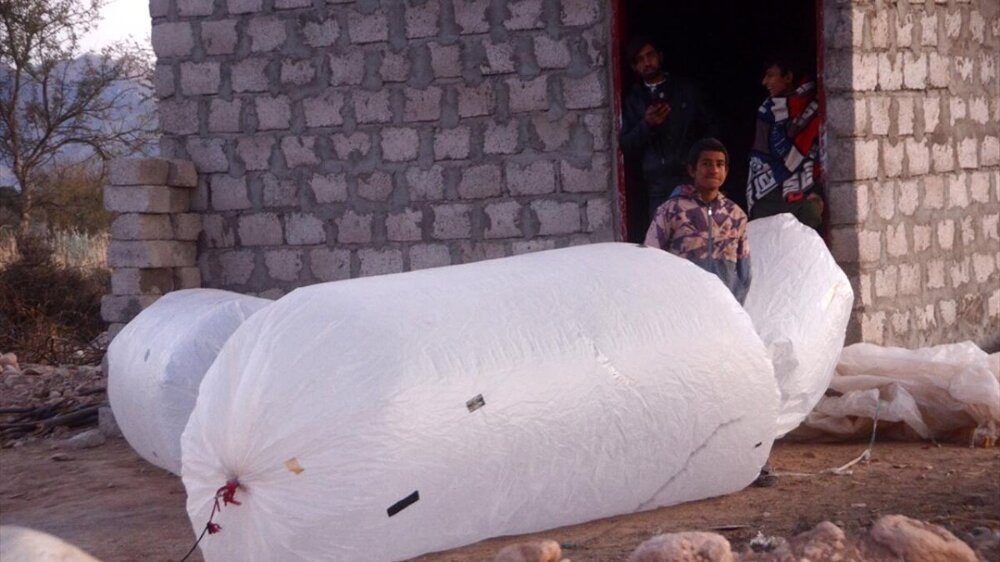Why is natural gas transported in plastic bags in Pakistan (13 photos)
“The need for invention is cunning” - this well-known saying perfectly characterizes the situation that poor residents of Pakistan are forced to put up with and, due to lack of finance, do things that are not quite usual for the average person - for example, dragging on their own shoulders or transporting by attaching to a bicycle or motorcycle, huge plastic bags filled with gas. 
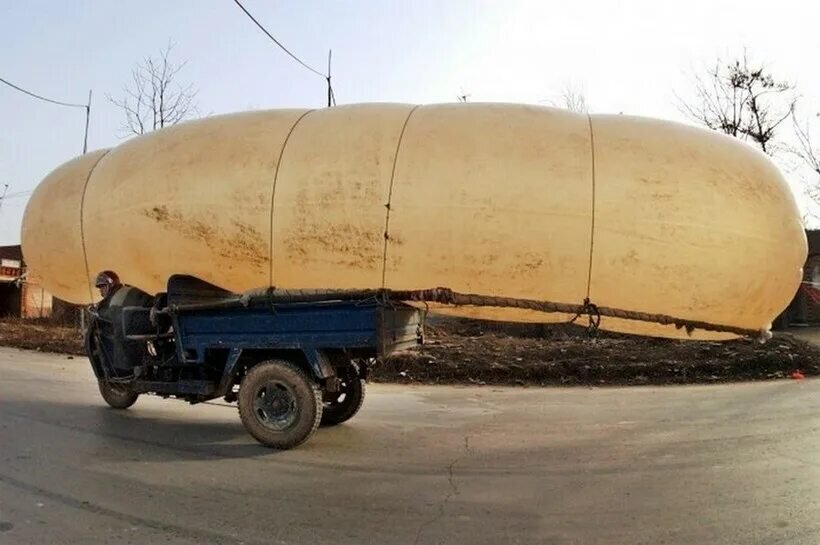
Any sane person who is not familiar with the way of life of local residents, seeing a Pakistani with a huge zeppelin on his shoulders or the trunk of a vehicle, should move as far away as possible, since Pakistanis transport natural gas in huge plastic bags, the length of which often reaches 6 meters. 
“Very unsafe,” you will reasonably note, and you will be right. This method of transporting gas is truly so dangerous that it borders on madness. If there is the slightest gap in a plastic container, an accidental rupture of the bag during movement or excessive shaking, a leak is possible, and no one is safe from an accidental fire or even explosion. However, Pakistanis consciously take such risks and put their lives in danger every day by transporting flammable cargo from place to place. 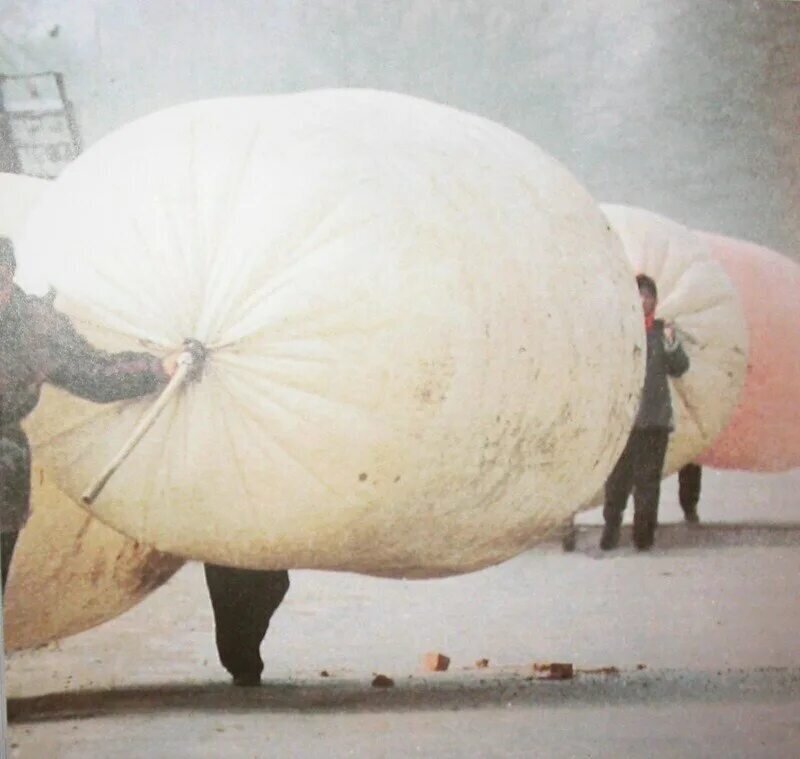
What forces them to do this, as I mentioned above, is poverty. In villages and hamlets remote from large cities, residents earn their living exclusively through hard physical labor, and needless to say, their wages hardly allow them to make ends meet. 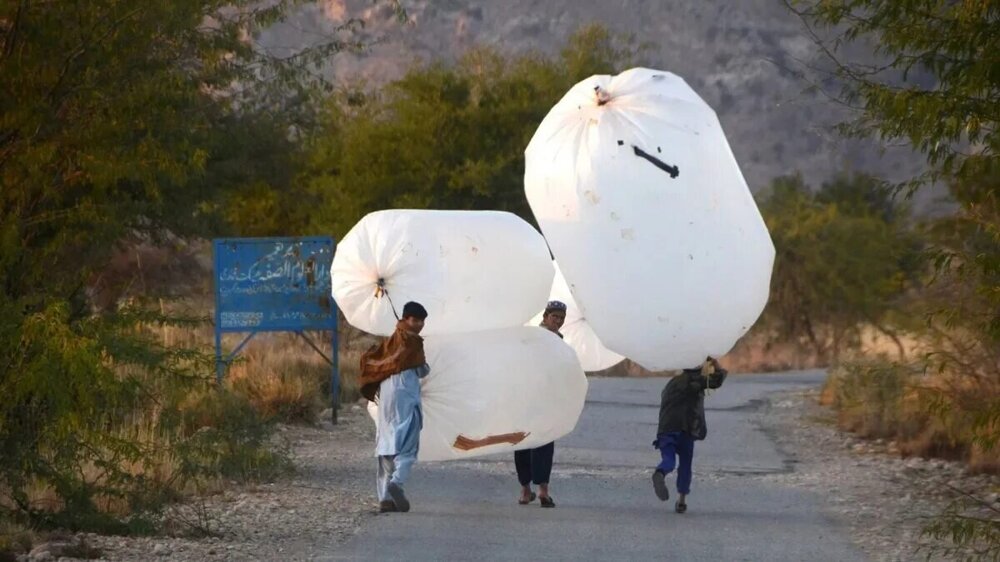
Many poor Pakistanis live not only without hot water and gas (although Pakistan has quite large reserves of natural gas), but also with constant power outages. Ordinary hard workers would be happy to solve at least one problem, for example, laying a gas pipeline to their house, but not every Pakistani is able to financially bear the full cost of laying gas pipes. So we have to get out of it by delivering gas in huge packages directly to the house. 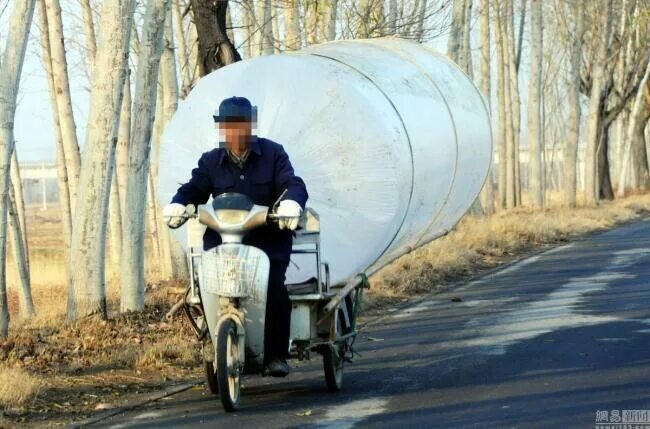
But why was such a strange container chosen? After all, it is much more common and safer to transport gas by first filling metal cylinders with it? It's all about Pakistani legislation, according to which only cafes and restaurants, industries, car services, agriculture, and so on can transport and store gas in cylinders. They are legally required to use gas exclusively in cylinders, and nothing else. 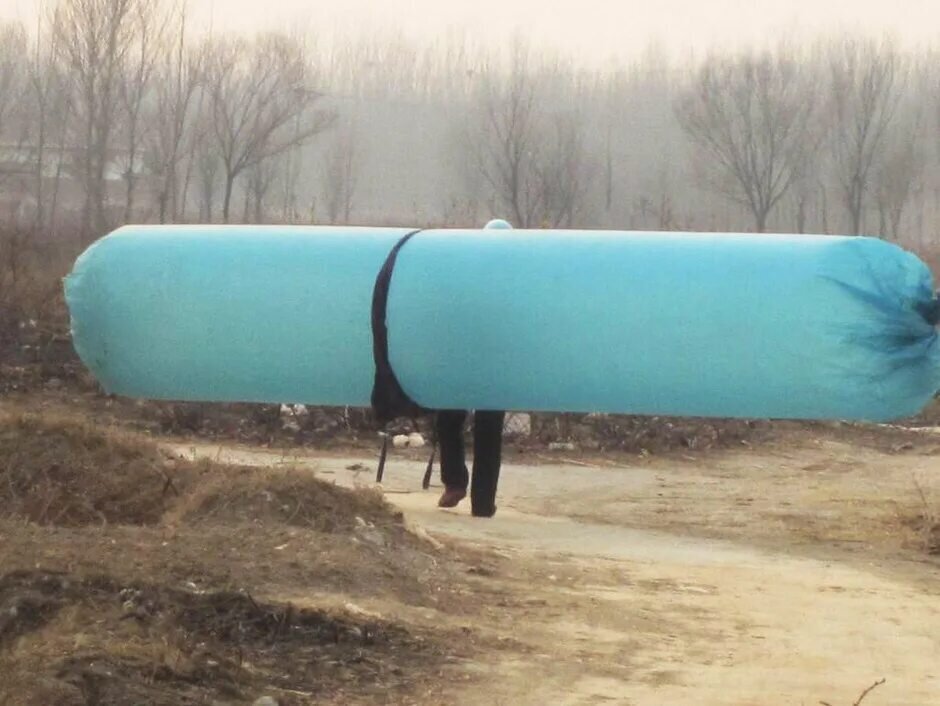
But the law does not regulate the use of natural gas for personal purposes at all. That is, there is a ban on storing and transporting gas in cylinders, and that’s all. Therefore, enterprising local residents found a way out of the situation and chose the most budget-friendly packaging option - huge plastic bags. 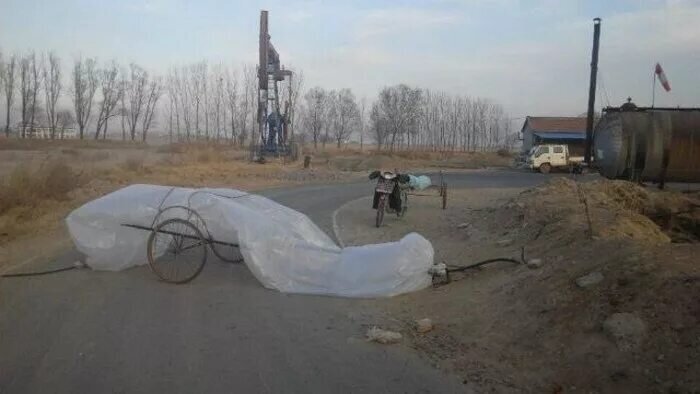
Of course, the state is not enthusiastic about such an initiative. Moreover, almost all carriers steal natural gas from the main networks. But, knowing the difficult financial situation of residents of poor areas, the Pakistani authorities turn a blind eye to these offenses and do not punish the thieves. And the state treasury loses millions of dollars every year. 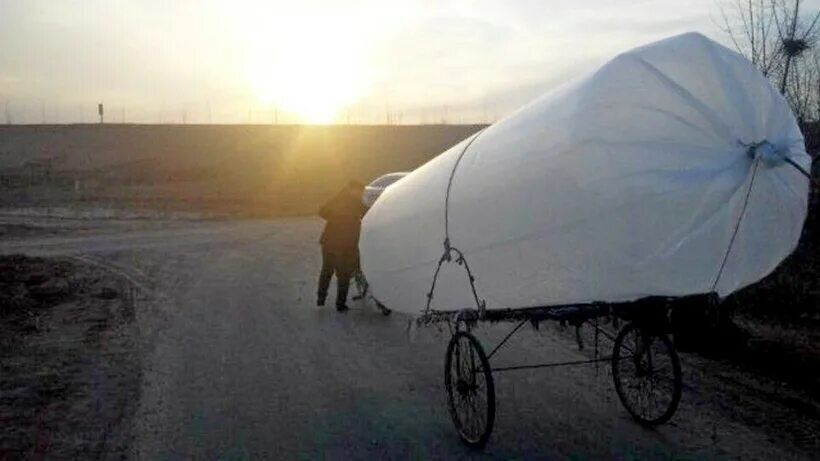
In addition, not all Pakistanis “crashe” into the gas pipeline on their own. There are even special teams that earn money by organizing illegal gas collection using professional equipment. And all that remains for the average Pakistani to do is just drive up with the bag, connect a specially designated hose to it and open the valve. 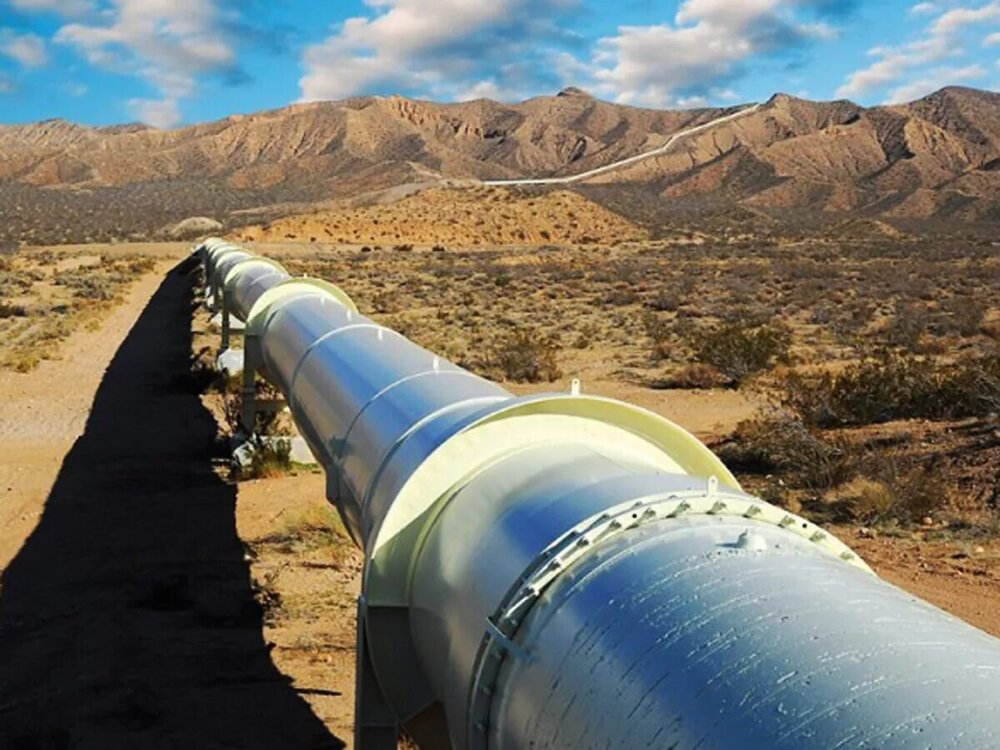
Gas pipeline
The polyethylene “bubbles” used for transportation, as a rule, contain up to 10 liters of gas, and this amount is quite enough for the normal life of one family for a week. This type of fishing is especially popular in populated areas.ah, located close to main gas pipelines and oil fields, where gas is reserved for running production machines. Workers have repeatedly warned local residents about the dangers of such fences, but to no avail. Gas is still stolen and sold to locals, who then carry huge plastic “bubbles” home. 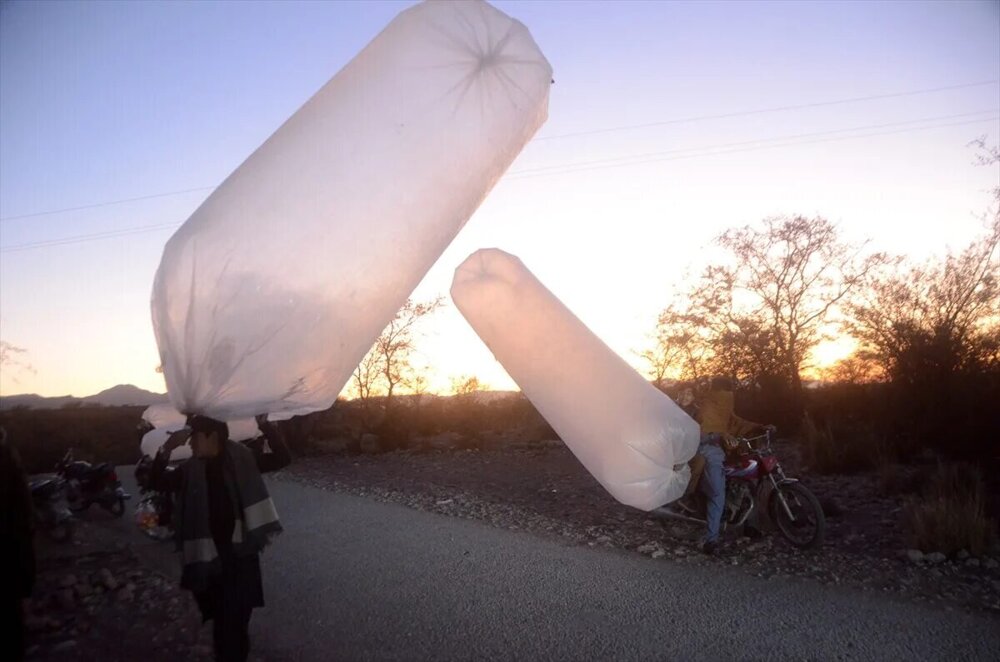
Such a polyethylene cylinder works for no more than a week, after which it becomes necessary to go for a new portion of gas. Well, explosions often happen not only on the road, but also at home due to inept connection of the slab to the bag or a pressure drop in the gas pipeline if the connection is made directly into it. The majority of injuries, namely burns, are suffered by women who, as you might guess, spend the greatest amount of time next to the cylinder. 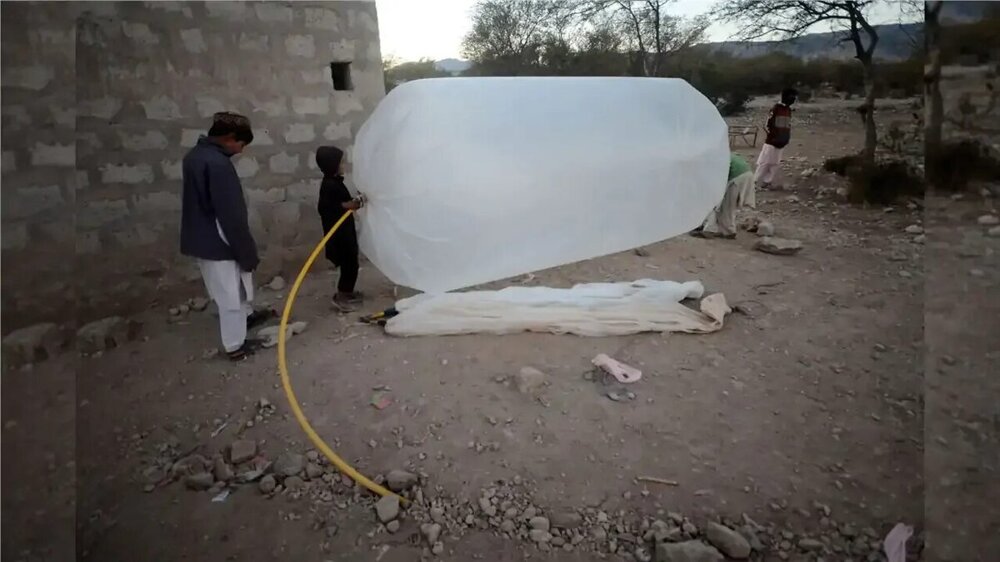
By the way, the tradition of gas bags has remained in Pakistan since the 20s, when buses with rubber bags on the roof walked along city streets, which were filled with gas from stationary gas generators. In developed areas of the country, all this is a thing of the past, but in the poorest provinces it has survived and turned into a very dangerous trade, without which many Pakistanis simply cannot survive. 